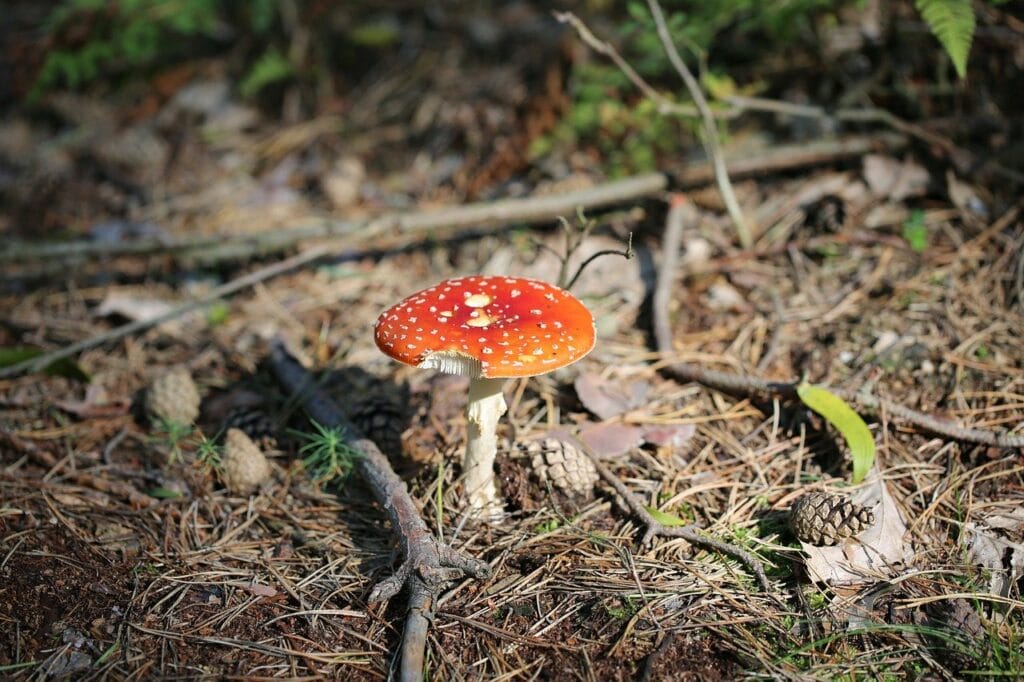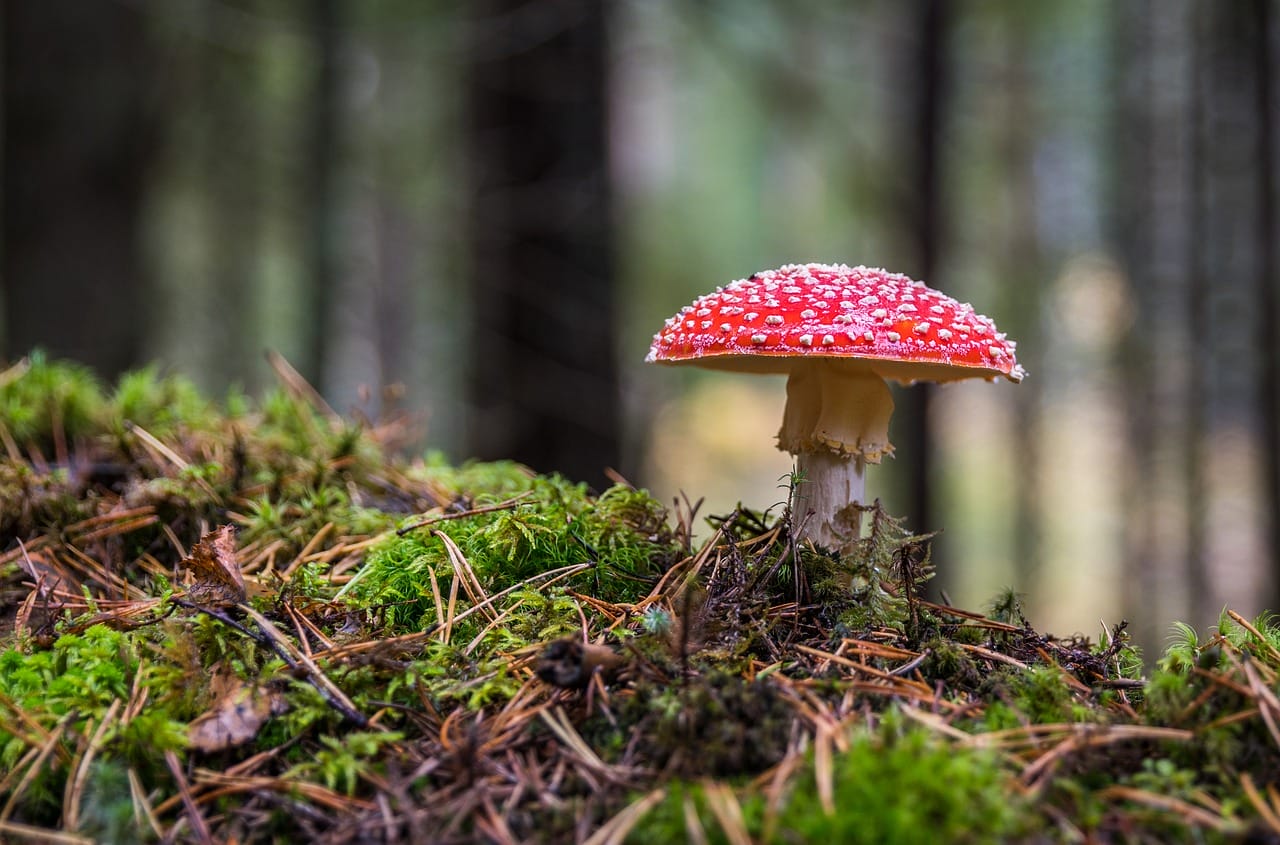Over the course of human history, the psychedelic properties of certain plants and fungi have been discovered and intentionally utilized.
Among them, fungi – specifically magic mushrooms, are acknowledged as a primary natural source of psychedelic substances.
The psychedelic compound, psilocybin, derived from mushrooms, occupies a significant role in history, having been employed in religious ceremonies and therapeutic practices.
Many researchers are dedicating their work to explore the possible health benefits of online shrooms. Current studies have shed light on the effects of psilocybin mushrooms. These findings bring hope to several individuals, demanding a conversation on their potential integration into Canada’s healthcare system.
Key Points:
- Magic mushrooms are rich in the psychoactive compound psilocybin, which has numerous potential benefits for addressing mental health issues in Canada.
- Psilocybin is safer with a lower risk of addiction and toxicity, compared to opioids.
- Psilocybin demonstrates sustained effectiveness in treating depression, with effects that can persist up to a year.

Understanding Psilocybin
Psilocybin is an indole-alkylamine (tryptamine) extracted from magic mushrooms that bears structural resemblance to lysergic acid diethylamide (LSD). It elicits hallucinogenic and euphoric experiences, likely due to its influence on serotonin (5-HT) receptors in the central nervous system.
Given its interaction with serotonin receptors, top-quality magic mushrooms show a unique potential to aid in treating mental health disorders.
The Mental Health and Opioid Crisis in Canada
Common Mental Health Disorders in Canada & Resistance to Treatment
| 2012 | 2022 | |
| Major Depressive Episodes | 4.7% | 7.6% |
| Generalized anxiety disorder | 2.6% | 5.2% |
| Social phobia | 3.0% | 7.1% |
| Alcohol use disorder | 3.2% | 2.2% |
More than one-third (36.6%) of individuals dealing with mood, anxiety, or substance use disorders revealed that their healthcare and mental health needs are either not met or inadequately met.
An academic paper from the Canadian Journal of Psychiatry shed light on the attitudes towards seeking treatment among patients with depression. The research meticulously examined 1282 patient records from 135 physicians. They identified 263 patients as having treatment-resistant depression (TRD), which suggests a prevalence rate of 21.7% across Canada.
Opioid Crisis
It is estimated that 8 million Canadians, representing one in five, endure chronic pain. If not managed effectively, pain can negatively affect various aspects of an individual’s life.
Healthcare practitioners occasionally recommend the usage of opioid medications for managing pain. While opioids can provide benefits such as relieving pain and improving functionality, they also come with potential risks.
From January 2016 to March 2022, at least 30,843 deaths related to opioid toxicity were recorded in Canada. The peak of these tragic incidents was in the early part of 2021, with a shocking 5,368 cases reported. It’s worth highlighting that the vast majority of these incidents, exceeding 88%, were in the provinces of British Columbia, Ontario, and Alberta.
For Major Depressive Episodes
In research published in the Journal of Psychopharmacology, 27 individuals with a long history of depression were engaged. Most of these participants had been dealing with depressive symptoms for approximately two years prior to the study. 88% of these individuals had previously undergone treatment with conventional antidepressants, and 58% reported active use of these medications during their depressive episodes.
The study observed significant reductions in depression following psilocybin treatment for both groups. Additionally, the severity of depression remained consistently low at the follow-up stages of one, three, six, and 12 months post-treatment.
For General Anxiety and Social Phobia
A case study published in the Croatian Medical Journal in October 2021 explored HTML:
The narrative centers around a
A 16-year-old solitary boy approached a mental health clinic for help due to his tendency towards self-isolation, severe anxiety, and declining school performance. His challenges were exacerbated by a learning disability and lack of motivation for studies, causing group therapy sessions to be overwhelming and unproductive for him.
Substantial positive transformations were noted after he underwent three psilocybin sessions over the course of 18 months. His anxiety lessened, his social and communication skills with classmates and teachers developed, and he started expressing his feelings more openly. He became an active participant in group therapy and his interpersonal relationships improved markedly.
In the Treatment of Alcohol Use Disorder
A recent clinical trial highlighted in a JAMA Psychiatry study published on August 24, revealed the potential of merging psilocybin and psychotherapy for treating alcohol use disorder. The researchers tracked the progress of 93 patients battling this condition for a period of 32 weeks.
Among the 48 individuals who partook in psilocybin-assisted therapy, there was a remarkable 83% reduction in alcohol intake within eight months of their initial dose, in contrast to a 51% reduction in the placebo group. Almost half of the participants who received psilocybin ceased drinking altogether.
Addressing the Opioid Crisis
Elena Argento, a postdoctoral fellow at the University of British Columbia and BC Centre on Substance Use, is investigating the therapeutic use of psychedelics.
Argento explains that psilocybin functions in dual ways to lessen addiction risks: it impacts both neurobiology and psychology. She underscores the transformational experiences psychedelics can catalyze, characterized by profound awe and self-transcendence. These experiences often help people discover new meanings and objectives in life, potentially initiating behavioral modifications, particularly concerning addiction.
In a longitudinal study recently conducted by Argento and the BC Centre on Substance Use, the research demonstrated a significant reduction in the probability of continued daily illicit opioid usage among those who had recently taken psychedelics or had done so in the last six months.
Argento’s 2018 study also proposed that psychedelic usage acted as a protective factor against the link between prescription opioid usage and suicide risk.
A distinct study revealed associations between psilocybin usage and a diminished risk of opioid use disorder. This prior research suggested a 40% reduced risk of opioid misuse and a 27% lower risk associated with opioid dependence over the
Psychedelic use in the past year has been notable.
Health Canada and Other Regulatory Authorities Should Consider Psilocybin as Part of Canada’s Therapeutic Approach
Despite recognition of Psilocybin’s possible benefits for mental health in Canada, its acquisition remains challenging. Health Canada allows medical professionals to prescribe this treatment under the Special Access Program. However, the stringent rules of this program serve as significant barriers for many practitioners and patients.
The therapeutic use of psilocybin-containing mushrooms could revolutionize mental health care in Canada, offering potentially transformative benefits. Rather than depending on traditional, but frequently less effective treatments like pharmaceuticals or opioid replacement therapy, psilocybin therapy presents an alternative with potential for deep and lasting effects.
There is evidence to suggest that psilocybin therapy could provide long-term benefits, potentially saving patients substantial costs on ineffective treatments. Moreover, research indicates that psilocybin is relatively safe, with low toxicity, minimal risk of misuse, and uncommon overdose instances.
Where Can One Purchase Psilocybin Online?
Should Canadians find psilocybin therapy access challenging, they can opt to buy magic mushrooms online to help alleviate their current conditions. They can browse through a range of magic mushroom products, from high-dose shrooms to microdose magic mushrooms.
High-dose shrooms encompass psychedelic mushrooms available in diverse formats like dried magic mushrooms, edibles, or drinks, consumed for their hallucinogenic and therapeutic effects.
Microdosing magic mushrooms refers to products containing small amounts of magic mushrooms. These products come in capsules, shroom edibles, or shroom tea. Buying shrooms online offers an alternative way to subtly reap the benefits of these mushrooms. Micro Zoomiez Canada exclusively sells top-tier magic mushrooms online, ensuring the best quality.
Is Psilocybin a Good Fit for Canadian Healthcare?
Psilocybin is a substance that’s often misunderstood due to its recreational use. It’s important to realize that psilocybin has a safer profile than opioids and other drugs commonly prescribed in healthcare environments.
There is a growing body of evidence suggesting its potential benefits, similar to those of marijuana, in treating various mental health conditions. dimensions of reality.
Magic mushrooms have been harnessed within the wellness sector to aid in mental health therapies and foster individual development.
What potential hazards and side effects can magic mushrooms cause?
Magic mushrooms can trigger a range of reactions, both beneficial and harmful. These may encompass hallucinations, modified perception, and mental shifts. However, they can also lead to nausea, vertigo and, in isolated instances, psychological distress. It’s crucial to approach the use of magic mushrooms with prudence and reverence, being aware of the possible risks involved. It’s always a good idea to consult a healthcare expert before embarking on any new regimen involving magic mushrooms.
Is purchasing magic mushrooms online secure?
Purchasing magic mushrooms online can be safe, so long as you select a credible source. It’s vital to perform an exhaustive investigation about the product, brand, and the online dispensary prior to executing a purchase. Customer reviews and ratings are beneficial indicators of product excellence and the trustworthiness of the service. Always opt for dispensaries that prioritize customer security and satisfaction and offer safe payment methods.
Can I cultivate my own magic mushrooms?
Indeed, it is feasible to grow magic mushrooms at home, which can be a rewarding endeavor. Nonetheless, it necessitates a specific set of conditions and a comprehensive comprehension of the cultivation process. Numerous kits and guides are available online to aid you in your cultivation journey. However, bear in mind that the legality of cultivating magic mushrooms varies by location, so ensure you are complying with your local laws and regulations.
Within the wellness domain, some individuals opt for a more measured approach, consuming smaller amounts of mushrooms to tap into their benefits without triggering hallucinations.
Interesting Articles You Might Enjoy:





